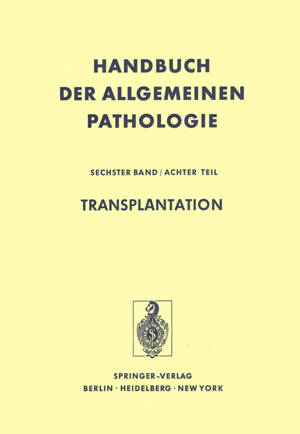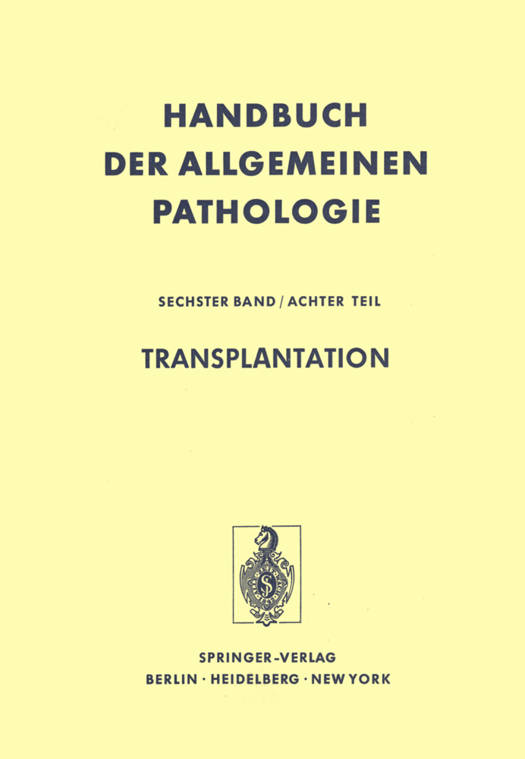
- Afhalen na 1 uur in een winkel met voorraad
- Gratis thuislevering in België vanaf € 30
- Ruim aanbod met 7 miljoen producten
- Afhalen na 1 uur in een winkel met voorraad
- Gratis thuislevering in België vanaf € 30
- Ruim aanbod met 7 miljoen producten
Zoeken
Transplantation
Paperback | Engels | Handbuch der allgemeinen Pathologie / Entwicklung, Wachstum, Geschwülste. | nr. 6
€ 52,95
+ 105 punten
Omschrijving
Organ transplantation has almost disappeared from headlines in the daily press, possibly because it failed to fulfill exaggerated expectations. Transplanta- tion pathology has become more and more important, not only with relation to therapeutic transplantations but even more in its fundamental theories. There is some analogy here to the development in space science where spectacular achievements were followed by sobering frustrations and where, for the time being, the effect on technology is more fruitful than the outcome of the original far-reaching projects. That transplant rejection was defined, in most of its stages, as an immunologic process, has given many new impulses to immunology in general. Transplantation assays have become a pet experiment in immunobiology and an abundant source of general information and knowledge. The implications of such a development could not be predicted when the present volume was outlined and planned. In accordance with the concept of WILLI MASSHOFF, general transplantion pathology was given a central position as a fundamental science, while the chapters on the transplantation of various tissues are of a more paradigmatic character. It was MASSHOFF who invited competent authors and who managed to balance their articles, despite some overlapping, so as to draw a comprehensive picture of contemporary transplanta- tion pathology. WILLI MASSHOFF died while he was editing the first manuscripts. As co-editors we have undertaken to complete the publication that we began together.
Specificaties
Betrokkenen
- Uitgeverij:
Inhoud
- Aantal bladzijden:
- 1070
- Taal:
- Engels
- Reeks:
- Reeksnummer:
- nr. 6
Eigenschappen
- Productcode (EAN):
- 9783642663949
- Verschijningsdatum:
- 12/11/2011
- Uitvoering:
- Paperback
- Formaat:
- Trade paperback (VS)
- Afmetingen:
- 170 mm x 244 mm
- Gewicht:
- 1710 g

Alleen bij Standaard Boekhandel
+ 105 punten op je klantenkaart van Standaard Boekhandel
Beoordelingen
We publiceren alleen reviews die voldoen aan de voorwaarden voor reviews. Bekijk onze voorwaarden voor reviews.










